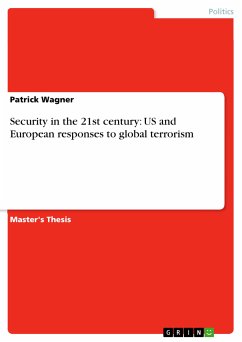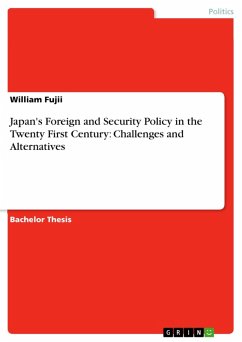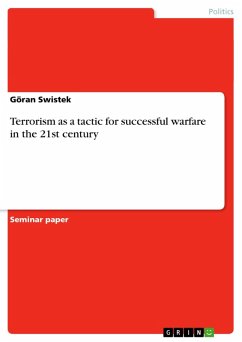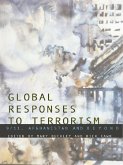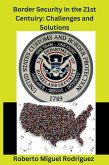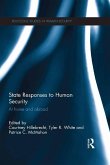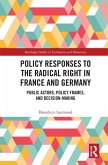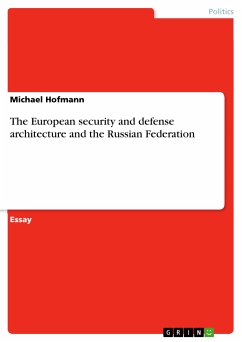Master's Thesis from the year 2004 in the subject Politics - Topic: Peace and Conflict, Security, grade: 2 (B), University of Kent (Brussels School of International Studies), language: English, abstract: Although the world stood united behind America when the dust of the collapsed twin towers of the World Trade Centre settled, differences between the United States and Europe soon became apparent. Europe might have supported the US in Afghanistan, both politically and militarily, but diverging interests already became apparent when the US sidelined NATO and preferred to lead 'Operation Enduring Freedom' itself. The dispute escalated over the US plans to continue the war on terror in Iraq. Here, it emerged that the US and Europe do not share the same world view. While the US seem to perceive the world in Hobbesian terms, and believe that military strength is the only means to achieve security, Europe appears to understand security in the Kantian sense and believes that 'perpetual peace' can be achieved. The question that divided Europe and the US over Iraq then is more than a simple difference of opinion but reflects a deep philosophical division: Can global security be achieved by force or through sustained dedication to a set of normative principles implemented by the world community? Consequently, the counterterrorism strategies formulated in Europe and the US are of a fundamentally different nature, which cannot be explained merely by the discrepancy in military capabilities. If that would be the case, Europe would have begun to build up its military potential by now. Acknowledging that "terrorism has become one of the most pressing political problems," (David Whittaker) the aim of this paper is to compare the US and the European approach to global terrorism, establish reasons for the differences and evaluate which approach might be more effective. As September 11, has changed our perception of security by demonstrating that even the US is, despite its unrivalled military superiority, vulnerable to attack, carried out by just 19 men armed with cardboard cutters, we should remain aware that the responses we chose to these attacks reflect our dedication to human rights, the rule of law and indeed freedom. Relying on military strength is easier than to acknowledge that terrorism is caused by a fundamentally unjust economical and political world order that markedly favours the West, yet it might ultimately prove to become more dangerous than terrorism itself, as it does nothing to resolve the problem but reinforces the world order that is the cause of the problem.
Dieser Download kann aus rechtlichen Gründen nur mit Rechnungsadresse in A, B, BG, CY, CZ, D, DK, EW, E, FIN, F, GR, HR, H, IRL, I, LT, L, LR, M, NL, PL, P, R, S, SLO, SK ausgeliefert werden.

